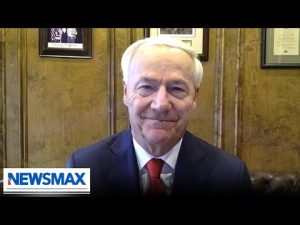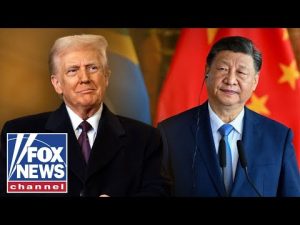In an increasingly complex world, the issue of drug trafficking continues to plague the United States and its neighboring countries. Recent discussions have highlighted the attention President Trump is drawing to the ongoing crisis involving drug cartels. Many are openly wondering just how far he is willing to take this fight and what it could mean for both the nation and the foreign leaders involved.
As the former Governor of Arkansas, Asa Hutchinson, recently pointed out, the DEA has historically taken a law enforcement approach to tackling drug trafficking. This included targeting organizations with legal action, seizures, and arrests. However, President Trump seems to be shifting gears—taking a more militaristic stance against these criminals who are wreaking havoc on American communities. With a military action plan in place to target the fast boats that transport illegal drugs, there’s no denying a potential new chapter is being written in the war on drugs. It certainly has people scratching their heads and raising eyebrows.
The heart of the matter, of course, revolves around the staggering drug-related deaths impacting Americans every year. With drugs flowing in at alarming rates, largely from Mexico and Central America, this crisis has been a long-standing issue. President Trump has labeled these drug cartels as international terrorist organizations, presenting a case for a military approach. Many conservatives applaud this action, deeming it necessary considering previous efforts have evidently fallen short. It seems that tackling cartels with military resources might just be what the doctor ordered—if only to shake things up.
Yet, some questions remain. Is President Trump’s focus solely on the drug cartels, or is he also targeting the leadership of rogue nations, like Venezuelan President Maduro? Maduro’s calls for “peace” were quickly dismissed as insincere, especially given his ties to the drug trade. His administration is widely viewed as corrupt, and a shift in leadership in Venezuela could potentially impact the drug trafficking operations that funnel illicit substances into the United States. The strategic nuances here reveal a broader vision that could go beyond just a hard-hitting approach against cartels; it may involve changing political landscapes abroad, too.
As this saga continues to unfold, it is clear that President Trump is ready to make some waves. Military action against drug traffickers could send shockwaves through their operations, making it increasingly difficult for them to function the way they once did. The key to success in this endeavor will be the clarity and transparency of the administration’s objectives. Will this be a sustained effort against cartels, or just a temporary measure in the grand scope of things?
In any case, one thing remains certain: the fight against drug trafficking is far from over, and under Trump’s leadership, it appears that traditional methods are being reconsidered. Whether his approach will yield the desired results is still up for debate, but it is certainly a time of change—both domestically and internationally. The hope remains that America can finally turn the tide against these dangerous organizations and ensure a safer future for all citizens.







